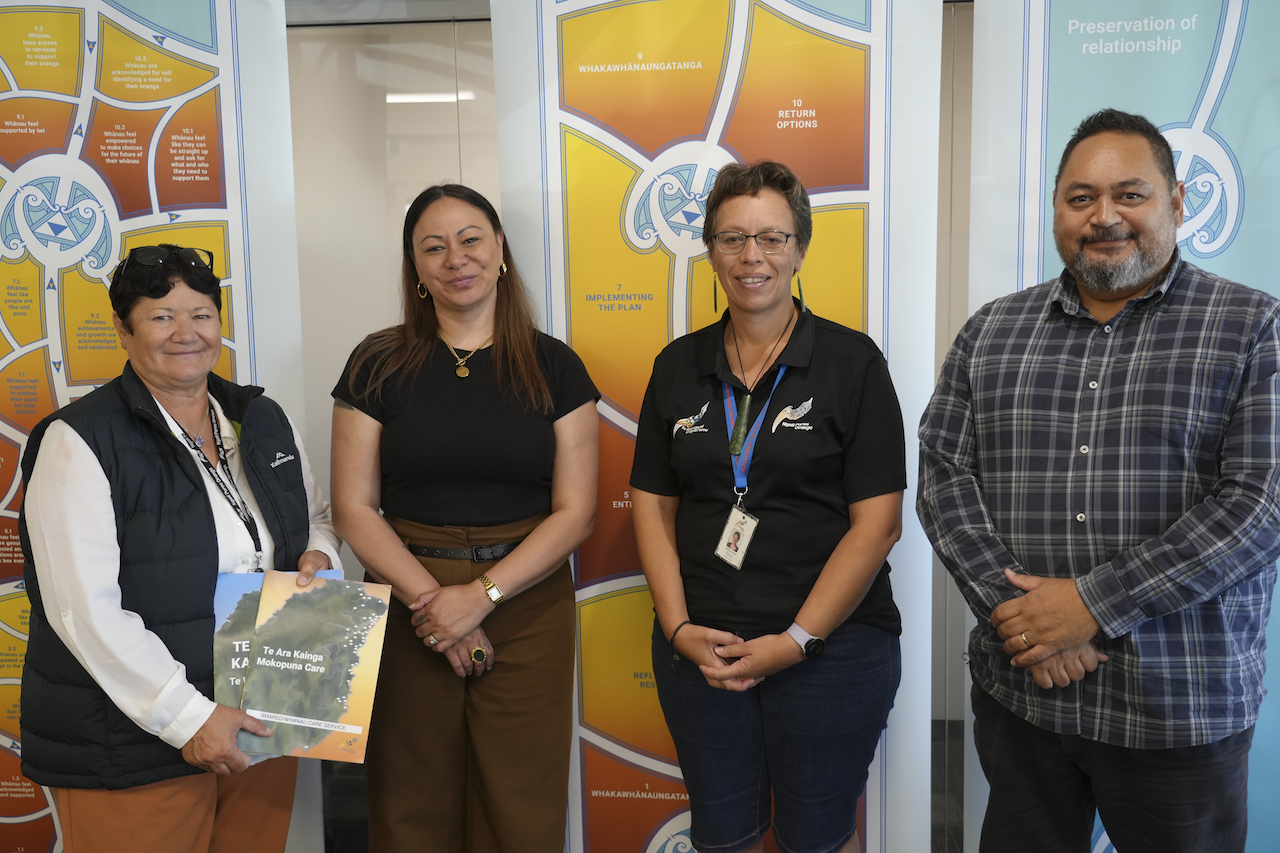Call Us

Kia ora tatau,
Ko Whetumatarau te maunga
Ko Awatere te awa
Ko Te Whanau a Hinerupe te hapu
He uri ano tenei o Tuwhakairiora o Hunaara
me Te Whanau a Te Aopare.]
Noreira, tena koutou.
I'm the General Manager of Te Rangawairua o Paratene Ngata – Centre of Excellence. Here, we focus on two key areas. One is research — with genomic research being a large component, although our research spans a wide range. The other area is population health, working directly with communities. Most of our work in this space is with hapū.We are slowly making our way through Ngāti Porou, working with hapū to identify their health priorities and the types of kaupapa they may wish to engage in to address health issues that affect them.
Well, He Kakano was inspired by a vision for better health outcomes for our people. And we do that by understanding the unique genetic code that we carry. We're all descended from tipuna who have adapted to their environment over time, and we carry those adaptations. So, 99% of us, all of us as human beings around the world have the same DNA, but it's that 1% where the variants, the differences that our adaptations have brought over time that are unique to us as people descended from Polynesians the navigators.
The problem is that many of the genetic code books around the world are based on people of Asian or European descent and that leaves us out. And so that's one of the other reasons why He Kākano was inspired to bring into being and to develop. We didn't want to miss out. We wanted to be able to offer the easy access and speedier access to a reference book for our whānau who might need it.
Well, I hope whānau will gain a sense of ownership and confidence in how their genetic information is being managed and handled, but also access, easy access for them as I've already mentioned. With a Māori codebook their solutions will be clearer and more accurate and it's also about giving Māori communities better tools for health so how is it that we now connect our whānau and our hapū to this information, so I guess that's the nextstep in the journey for us.
Ultimately, I want whānau to know that this isn't just about science. This is about whakapapa, it's about hauora, you know, it's about our whānau thriving. And, you know, in terms of the health status of our whānau, it's just one of the tools. There are many tools that we're trying to bring to bear to reduce the health burden of our whānau, but this is an important one.
The name He Kākano was coined by Papa Beau, when we have been engaged in our genomic research, we often talked about how the mauri comes down from Rangiātea. He Kākanoa i rūia mai i Rangiaatea. He kakano i ruiamai i Rangiaatea. And that mauri has been passed on from generations to generations and we are the carriers of it for this day and age. And so we are the kaitiaki we take on board those principles and that responsibility.
So, we're looking after the DNA of our whānau and our hapū and our iwi in various ways within tikanga frameworks, with the korowai of our karakia and our tikanga. And we're managing it we're being proactive in managing this. And He Kākano comes from that whole sort of sense of continuum, the continuation of us as a people.
He Kākano is not just science, it's a living continuation of us from Rangiaotea. We're not lost, we're descendants of greatness, we know this. And so even at the molecular level, we're carrying our tīpuna's intentions, their resilience, their wāwata hence we enact those principles of kaitiakitanga in this space, and that's He kākano.


-2.png)